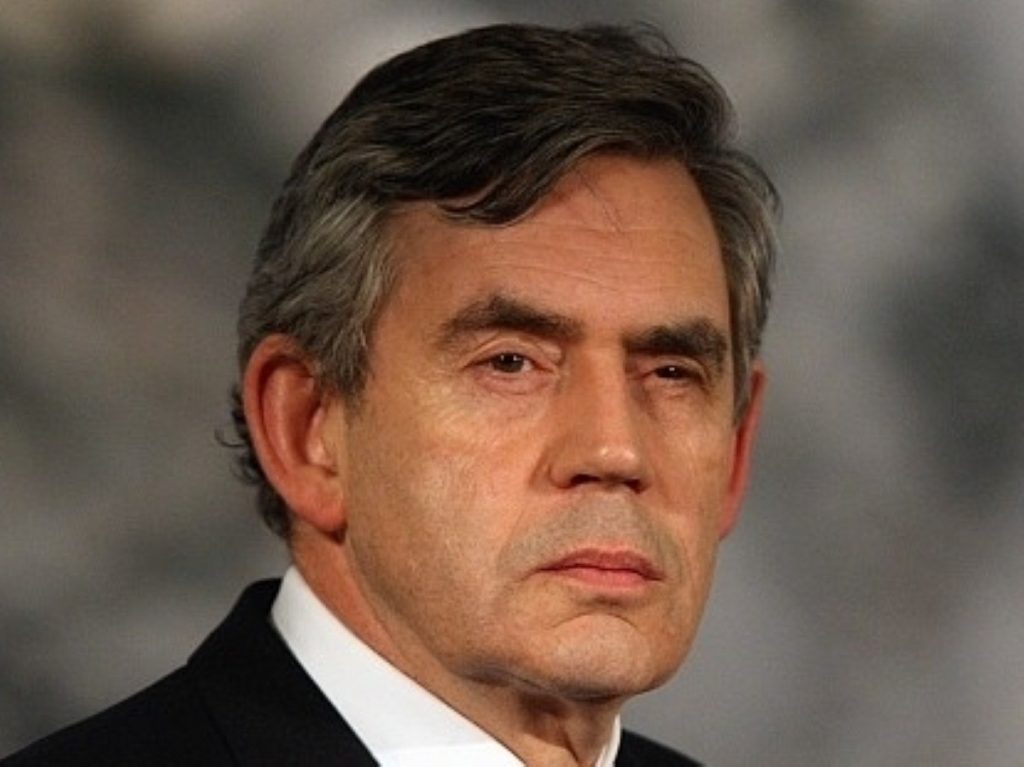Gordon Brown: A political obituary
Gordon Brown has announced he will step down as Labour leader by his party’s conference, politics.co.uk looks over his career.
By Aled Thomas
When Gordon Brown first came to political prominence he was a very different figure to the man who says he will leave the Labour leadership by the autumn.
As Labour rebuilt itself from the wreckage of 1983, he and Tony Blair, to whom he has been so umbilically linked, were the fresh hopes of the party in the late 80s and early 90s.


They shared an office, Brown having won Dunfermline in 1983 and Blair entering parliament the same time for Sedgefield.
Although both were born in Scotland, they were very different figures: Brown the son of a Church of Scotland minister in Fife, an academic and Labour man to his fingers, Blair the public schoolboy son of a Tory voter, who’d shown little interest in politics at university and more in playing in a rock band.
And it is this relationship which has dominated the Brown’s political life ever since.
They have always had disagreements – Blair was an enthusiast for the euro and the EU, Brown was not, and is much more of an Atlanticist, despite Blair’s ill-starred support for George Bush.
But the differences became personal and sulphurous when John Smith died. The ins and outs of the infamous Granita deal are too well known to reheat here, but it’s clear that for the ten years of Blair’s premiership, there were problems between him and his chancellor Brown.
When they took office, both were lauded; Brown possibly more so than Blair, whom many saw as a bit of a lightweight.
Brown was the big brain, he had prudence on his side, we laughed when he talked about neo-classical endogenous growth theory, but it was him we wanted in charge of the piggy bank.
He had always been brilliant, growing up in the church manse in Kirkcaldy – he remains a devoted fan of local football team team Raith Rovers – he was advanced two years at school, which he hated and he went up to Edinburgh University aged 16 where he was elected rector while still a student.
While at university he had to undergo experimental surgery to save the sight in his right eye, having lost sight in the left after a kick to the head in a schoolboy rugby game. His disability was to have a bizarre effect on his premiership later
In the early years on the new labour government, female columnists even wrote about having major crushes on Brown, how sexy he was. Compare that to the hunched and battered figure he presented during this campaign.
But the cracks were soon to show. Lyndon Johnson has a line about exactly where to keep a tricky customer in relation to the tent, but sometimes Blair must have wondered.
The briefings back and forth were relentless and Andrew Rawnsley’s book ‘Servants of the People’ not only detailed screaming fits by the chancellor, it alleged a senior figure in the party had called Brown ‘psychologically damaged’.
While the good economic time rolled on, it didn’t seem to matter, but Brown wanted the top seat at the Cabinet table.
The war in Iraq gave him his chance. Despite winning the 2005 election, in his party’s eyes Blair was damaged goods, and Brown took over in mid-2007.
If he’d gone to the country in the autumn of that year he would still be in power now. He had dealt with various problems competently, including attempted terrorist attacks, and the public admired his steady hand.
But when he decided not to call an election that year, it seemed to embody several of his perceived flaws; a lack of decision and obvious political calculation.
His premiership since then has been something of a lurch from crisis to crisis, most not of his making; the banking crisis, (his handling of which is admired abroad, but much less so here), increasing casualties in Afghanistan, and even the state of his handwriting when he writes to bereaved mothers, caused by the size of nib he has to use because of his poor sight.
Books alleged he was prone to a volcanic temper, he was outperformed in the leaders’ debates and his anger at an encounter with a moderately feisty but ultimately supportive Labour voter showed him to have lost the ability to persuade on a one-to-one basis.
He may be PM for hours or days, or perhaps until the autumn; whatever, it seems the giant figure of recent British political history is soon to be taking his final curtain.
He leaves a defeated figure, but not a crushed one in the way John Major was. Many may blame him for Labour’s defeat, but equally many will praise him for maintaining his party’s second place in the election and in a position where victory next time is not out of the question.
The verdict on his handling of the economy for ten years is harder to ascertain: is he to blame for the financial crash by regulating too lightly, or did he save the economy by acting swiftly? Did he spend too much on the public services or should he have gone farther in redistribution?
It’s too soon to say, what’s certain is that he has set the tone for British politics for the next decade and will be the subject matter of many historians for years to come.









